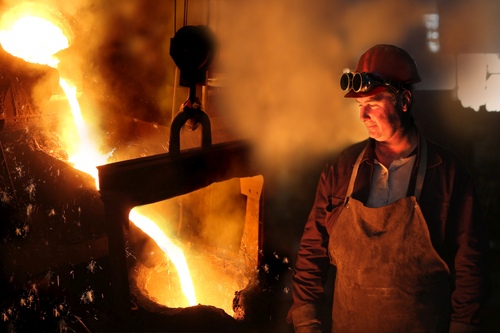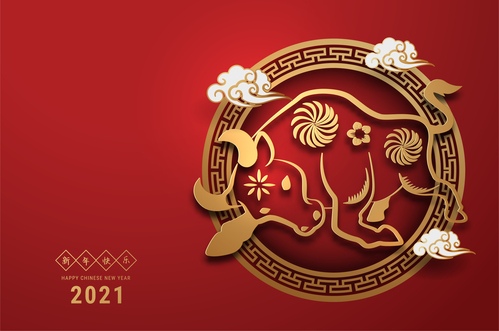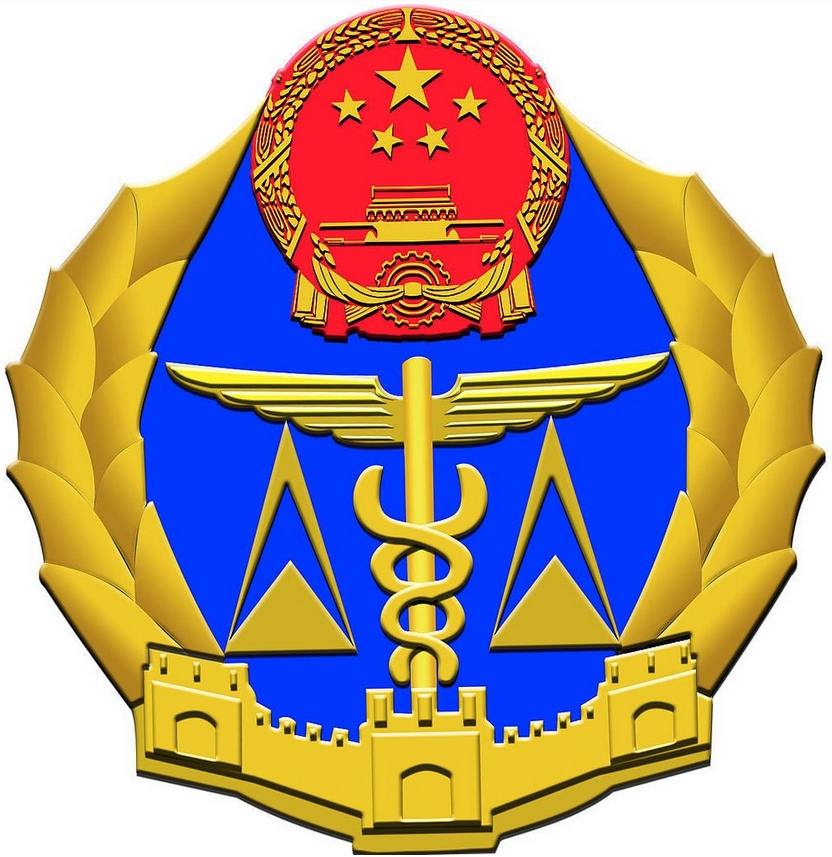Steel sector in China shows increased production during 2020
The steel sector in China saw a slight increase during the first 10 months of 2020, according to industry data analysis. Crude steel output grew 5.5 percent year-on-year and now stands at 874 million tons, the China Steel and Iron Producers Association reported. Pig iron output increased 4.3 percent year-on-year and now stands at 742 million tons. The association expects that by the end of 2020 more than 1 billion tons of crude steel could be produced. This represents an annual increase from 3 to 5 percent.

In 2018, China was the world’s largest steel producer, responsible for more than half of global steel production. China produced around 928 million tons of steel in 2018, doubling its capacity in ten years. Six of the top ten steel producers are located in China. Domestic iron ore mining was still able to meet demand until the early 1990s, but was soon overtaken by imported iron ore. The majority of steel production takes place in numerous smaller industrial centers, the largest of which is located in Anshan in Liaoning Province.
China’s steel exports peaked in 2015 at 110 million tons. After that, the volume slowly but steadily declined. In 2018, the volume was only 66.9 million tons, an increase of 9 percent compared to the previous year. As early as 2012, while the Chinese steel industry was still being established, numerous countries imposed anti-dumping duties to make it more difficult to import cheap steel from China. For 2018, the Chinese steel industry reported profits of around $70 billion, up 39 percent from the previous year. Domestic demand for steel remains stable, partly due to numerous infrastructure and construction projects in Xinjiang Autonomous Province in western China. The central government has set up several special economic zones there around the provincial capital of Urumqi, as well as pressing ahead with the expansion of the international airport and a station for high-speed trains.
Certain product groups such as steel and iron products must be awarded a CCC certificate in order for the products to be exported to China. The CCC certificate was introduced in 2002 and applies to both imported and Chinese products. The Chinese CCC is comparable to other certifications for standardizing product quality, such as the European CE system, but there are important differences.
For more information on how CCC certification, the CCC Self-Declaration and voluntary CCAP or CQC certification may affect your company, or for more information about CCC certification in general, the process, and the associated costs, please visit our website and our News Section where you will find current updates twice a week.
Please do not hesitate to contact us for further details and consultation. You can contact us via e-mail, or call us (UK: +44 2071931135, Rest of Europe: +49 69 2713769150, US: +1 773 654-2673).
Please don’t hesitate to also use our chat-window in the bottom right corner if you have any questions. (Please check your browser settings if you can’t see the window)
You can also check out our free CCC-Brochure, which can be downloaded right here as a PDF file or you consult our book (in English) “A Brief Guide to CCC: China Compulsory Certification”, which can be found directly here on Amazon.
Here you can download our brochure about the CCC Self-Declaration.
Here you can download our brochure about the voluntary CCAP or CQC certification.
Taiwan auto market reports highest sales in 15 years
Taiwan’s auto market defied the Covid 19 pandemic to reach a record 457,000 new cars sold in 2020, the highest sales figures since 2006, the China Times newspaper reported. According to the vehicle licensing authority, 457,435 new vehicles were registered last year, up 4 percent compared to 2019. Broken down by manufacturer, Toyota leads sales in Taiwan with 27 percent market share followed by Nissan with 7.7 percent. Honda (6.7 percent), Mercedes-Benz (6.5 percent) and Ford (6.3 percent) ranked next. Together, Toyota and Lexus sold 146,000 cars and owned 32 percent of the market.

The Toyota RAV 4, which sold 31,000 units, overtook the Toyota Altis (marketed in Europe as the Corolla), which had held the top spot for 19 years and sold 29,000 units, as the best-selling model in Taiwan. However, the RAV 4 may soon be displaced from its top spot, as the locally manufactured Toyota Corolla Cross in Taiwan is showing good sales figures. Only available since October 2020, 12,000 vehicles have already been sold in three months and insiders expect around 40,000 vehicles to be sold this year. The Corolla Cross is based on the Corolla’s current E210 platform and is positioned between the C-HR and RAV 4.
In terms of luxury vehicles, Mercedes-Benz is in first place with 29,000 vehicles, followed by Lexus and BMW with 22,000 and 18,000 vehicles each. Newcomer Tesla sold 5,819 vehicles, positioning itself in the top 5. Last year, 215,000 imported new vehicles were sold, representing a market share of 47.2 percent. All foreign manufacturers or their imported vehicles recorded rising sales figures, with VW subsidiary Skoda selling 7,041 vehicles. This corresponds to a growth of 22 percent compared to the previous year and is the company’s best result to date since its market launch in Taiwan.
In order to import products into Taiwan, it must be ensured that they meet safety and quality standards in Taiwan. This is ensured by specific, product-dependent certifications, which certify that the products comply with the relevant regulations in Taiwan. The Vehicle Safety and Certification Center (VSCC) is responsible for vehicles and products in the automotive industry in Taiwan. The authority was established in 2009 by the Ministry of Transport and Communications in the city of Lugang in Taiwan. In its scope, the VSCC certification for Taiwan are similar to the Chinese CCC and CEL certifications.
MPR China Certification GmbH has many years of experience in Taiwan certification and competent local partners. We will be pleased to advise you without obligation about the scope and procedure of a Taiwan certification.
Please do not hesitate to contact us for further details and consultation. You can contact us via e-mail, or call us (UK: +44 2071931135, Rest of Europe: +49 69 2713769150, US: +1 773 654-2673).
You can also check out our free Taiwan-Brochure, which can be downloaded right here.
Please don’t hesitate to also use our chat-window in the bottom right corner if you have any questions. (Please check your browser settings if you can’t see the window)
Authorities in China closed for Chinese New Year
In 2021, Chinese New Year will take place on February 12, 2021. which heralds the beginning of the Year of the Ox. The timing of the holiday, also known as the Spring Festival, is determined by the lunar calendar and thus varies each year. On China’s most important holiday, Chinese authorities are often closed several days in advance to allow employees enough travel time back home.
This year, the Chinese authorities are again closed for several days. According to official information, the CQC (China Quality Certification Centre) will close from Feb. 11 to Feb. 17, 2021, inclusive, and test labs will also be closed during this period. The CCAP (China Certification Centre for Automotive Products) will also close from 10.02.2021 up to and including 17.02.2021. Delays are therefore to be expected for ongoing certification processes.

MPR China Certification GmbH in Germany, as well as the subsidiaries in the US and China will be open and working as usual. We will gladly continue to support you with your certification processes during Chinese New Year.
For more information on how CCC certification, the CCC Self-Declaration and voluntary CCAP or CQC certification may affect your company, or for more information about CCC certification in general, the process, and the associated costs, please visit our website and our News Section where you will find current updates twice a week.
Please do not hesitate to contact us for further details and consultation. You can contact us via e-mail, or call us (UK: +44 2071931135, Rest of Europe: +49 69 2713769150, US: +1 773 654-2673).
Please don’t hesitate to also use our chat-window in the bottom right corner if you have any questions. (Please check your browser settings if you can’t see the window)
You can also check out our free CCC-Brochure, which can be downloaded right here as a PDF file or you consult our book (in English) “A Brief Guide to CCC: China Compulsory Certification”, which can be found directly here on Amazon.
Here you can download our brochure about the CCC Self-Declaration.
Here you can download our brochure about the voluntary CCAP or CQC certification.
Total Ban on Imports of Solid Waste in China

The Law of the People’s Republic of China on the Prevention and Control of Environmental Pollution by Solid Waste was implemented on September 1, 2020. The new law includes:
- Complete prohibition of the importation of solid waste from outside of China into China for dumping, depositing or disposal.
- Ministry of Ecology and Environment shall stop accepting and approving applications for import licenses for solid wastes that can be used as raw materials in restricted import categories.
- Customs special supervision areas and bonded places of supervision within the unit generated by the solid waste not shipped out of the country, in accordance with the relevant provisions of domestic solid waste management. The unshipped solid waste produced by units in the special customs supervision area and bonded supervision area (Including bonded area, comprehensive bonded area and other special customs supervision area and bonded logistics center, type A/B, bonded warehouses and other bonded area of supervision) shall be managed in accordance with the relevant domestic solid waste regulations. For solid waste that needs to be stored, utilized or disposed of outside the area, relevant procedures should be handled with the local government’s administrative department of special customs supervision area and bonded supervision area, and the customs will no longer check relevant approval documents.
- For solid wastes generated in the course of production operations by units carrying out bonded repair and remanufacturing operations outside the special supervisory areas and bonded supervisory sites of the Customs that have not been re-shipped out of the country, please refer to the provisions of paragraph 3.
This announcement was implemented on January 01, 2021.
The result of the announcement is that no GACC/ AQSIQ licenses for exporters of solid recycling material are issued anymore and old licenses become invalid.
Please do not hesitate to contact us for further details and consultation. You can contact us via e-mail, or call us (UK: +44 2071931135, Rest of Europe: +49 69 2713769150, US: +1 773 654-2673).
Please don’t hesitate to also use our chat-window in the bottom right corner if you have any questions. (Please check your browser settings if you can’t see the window)
You can also check out our free CCC-Brochure, which can be downloaded right here as a PDF file or you consult our book (in English) “A Brief Guide to CCC: China Compulsory Certification”, which can be found directly here on Amazon.
Here you can download our brochure about the CCC Self-Declaration.
Here you can download our brochure about the voluntary CCAP or CQC certification.


